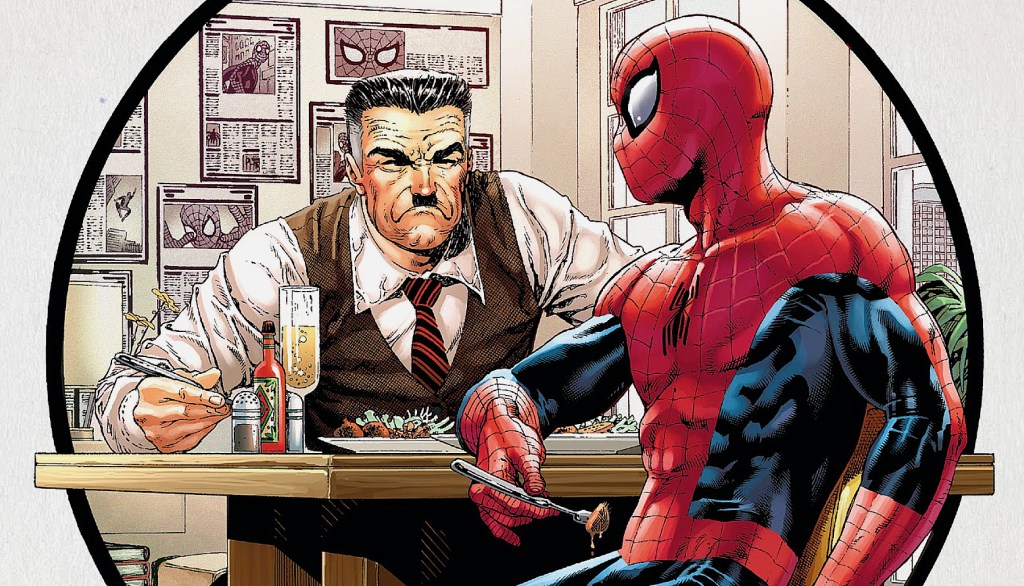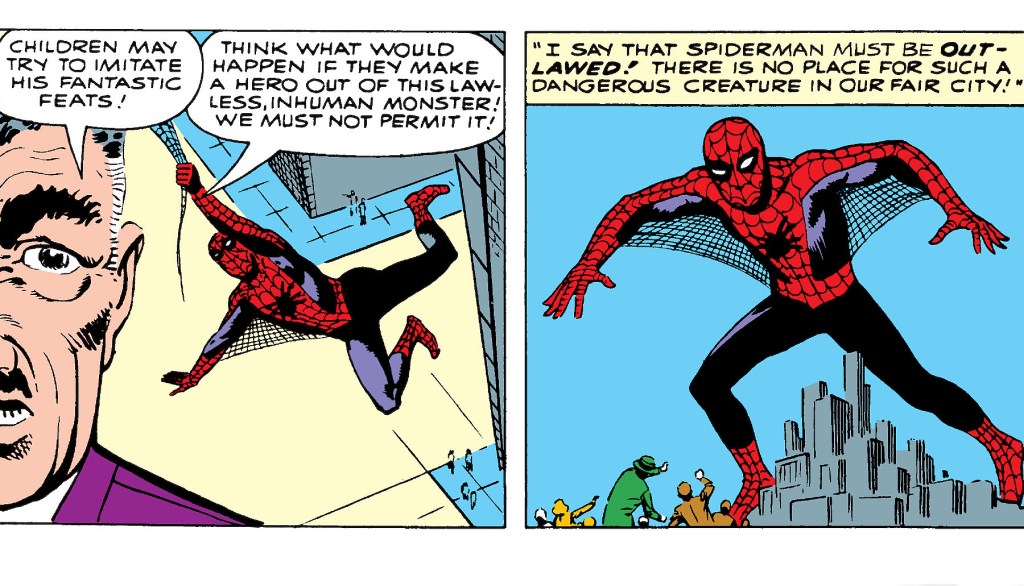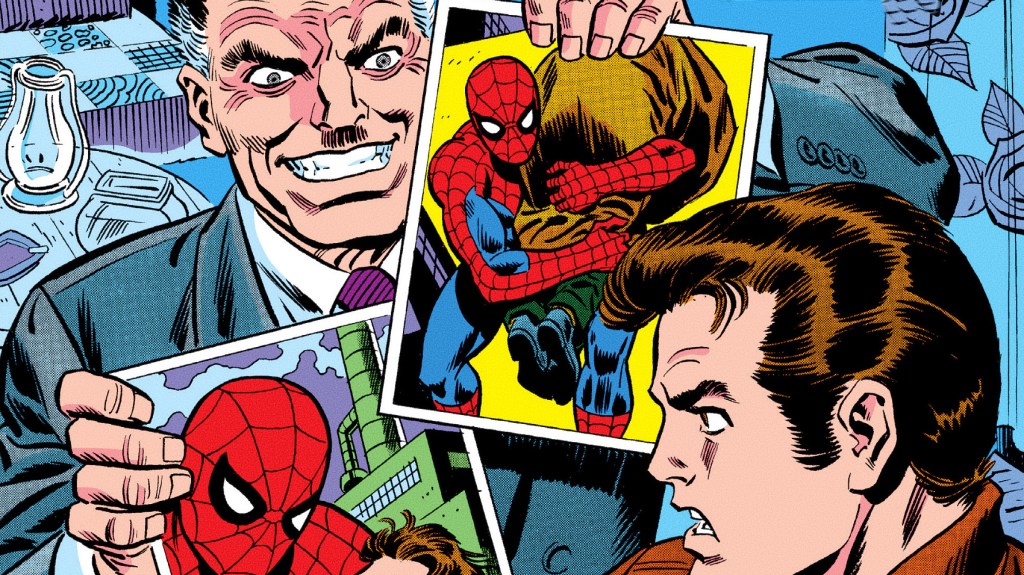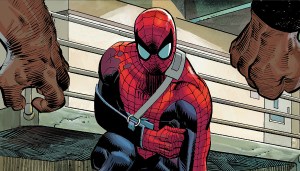When fans think of Spider-Man’s most hated enemies, plenty of villains likely come to mind. From the Green Goblin to Doctor Octopus to Venom, there’s no shortage of “baddies” dreaming of making Spidey “bend the knee.” Yet none of these infamous foes can compare to the one Spider-Man adversary who has arguably spent more blood, sweat, and tears trying to erase him from existence — and has been doing so since the earliest days of the hero’s debut. In fact, given his almost absurd ability to sway public opinion, it’s remarkable that his relentless efforts haven’t already turned the entire city, country, and world against Spider-Man.
Videos by ComicBook.com
J. Jonah Jameson’s hatred for Spider-Man dates back to the very first issue of Amazing Spider-Man. Beyond his role as the editor-in-chief of the Daily Bugle, his animosity toward the webslinger is one of his most defining traits. It’s a passion he’s pursued for decades, a pursuit that has not only strained his relationship with his son, John, but also indirectly led to the creation of some of Spider-Man’s most iconic foes. Given that Jameson is an intelligent, well-informed individual in a world filled with superheroes, it’s worth considering: does his skepticism of Spider-Man have merit?
Why Is Jameson Such a Spider-Man Hater?

After the death of his Uncle Ben, Peter Parker tries, in Stan Lee and Steve Ditko’s The Amazing Spider-Man (1963) #1, to help his Aunt May make ends meet by continuing his performance gigs as Spider-Man. However, even these modest opportunities dwindle due to J. Jonah Jameson’s smear campaign against him. Under Jameson’s analysis, allowing a “masked menace” to take the law into his own hands sets a dangerous example for young people. Supporting Spider-Man, he claims, would encourage kids and teenagers to mimic his actions — without his skills, experience, or, most importantly, his superhuman abilities.
But Jameson’s hatred goes well beyond this basic frustration. Indeed, as Parker himself observed, in a city filled with heroes “like the Fantastic Four,” why was Jameson so focused on Spider-Man? The answer turned out to be that, unlike those other established heroes who voluntarily expose their identities, Spider-Man was a different breed – one that acted alone, without a clear motive or official imprimatur – and Jameson thinks that “freedom” is dangerous. That is, he felt heroes without rules could not be trusted to act without damaging the city, injuring or killing the innocent, or otherwise causing chaos and havoc.
Jameson also harbors a deep personal bias against Spider-Man. This largely arises from his belief that Spider-Man was a personal threat to the admiration he believes his son, the famous astronaut, deserves. In his view, heroes should be like John Jameson, who openly and proudly displays his talents. Additionally, hating Spider-Man serves as the Daily Bugle’s strategy to generate clickbait. The more Jameson condemns Spider-Man, the more readers flock to his newspaper. Ultimately, Jameson’s animosity towards Spider-Man is founded on his belief that he’s a troublemaker who gets away with murder by a soft and lenient city government and police force.
For Jameson, Nothing Can Overcome or Diminish the Harm Spider-Man Causes

The fact that Jameson is a loudmouthed blowhard who weaponizes his paper to amplify his personal grievances against Spider-Man doesn’t mean his complaints are entirely baseless. In several instances, his criticisms are more accurate than not. Indeed. Jameson’s “menace to society” claim, which is one of his most popular Spidey diatribes, is accurate. According to his accusation, Spider-Man’s actions are harmful or dangerous because they break the law, contribute to public safety risks, or engage in disruptive behavior. When you compare those accusations to the actual facts on the ground — or across the rooftops — Spider-Man is “guilty as charged.”
First, Spider-Man is a vigilante. Vigilantism is illegal regardless of good intentions or positive outcomes because it promotes disrespect for law enforcement, including police and other official authorities like those superheroes previously registered under the Superhuman Registration Act. Under the “black letter of the law,” Spider-Man is an unrepentant lawbreaker who actively engages in criminal activity at a near-daily rate. Second, getting into fights with villains like the Rhino in a crowded Washington Square Park or chasing the Green Goblin down Park Avenue during rush hour is the definition of reckless behavior that endangers the public, even if the ultimate goal is to protect them. Third, not even Peter Parker could deny that he consistently engages in actions that disrupt public peace. In other words, as Jameson argues, Spider-Man is a menace to society.
Jameson: “Spider-Man, He Creates These Criminals”

Even if Spider-Man isn’t a “menace to society,” he still seems to satisfy the second part of Jameson’s argument: that Spider-Man contributes to lawlessness as much as he prevents it. Jameson argues that Spider-Man’s actions have inadvertently led to the creation or deviancy of many of the criminals he fights. It’s worth noting that Jameson’s stance is somewhat hypocritical, as he has a history of investing in and supporting villains like the Scorpion. Despite this, Jameson’s point holds some weight because the criminality of more than a few of Spider-Man’s enemies is indirectly tied to his or Peter Parker’s actions. These include the burglar who killed Uncle Ben, the Green Goblin, whose obsession with Spider-Man increased his volatility, and – of course – Venom. All of these antagonists have gone on to become major menaces in their own right.
While it’s easy to dismiss Jameson’s anti-Spidey tirades as the ranting of a cranky newspaper mogul with too much time on his hands or a self-serving campaign — to use Spider-Man as a lightning rod to draw attention to himself and his newspaper, a dog whistle to rally the many virulent anti-superhero voices in the Marvel universe — there’s more to consider. When one compares Jameson’s specific criticisms to the facts, it’s hard not to conclude — objectively speaking — that he might actually have a point. Spider-Man, at the very least, is a nuisance. That being said, the logical next question becomes whether Spider-Man, despite the “problems” he may cause, ultimately brings more good, more justice, and puts an end to more evil than a world without him ever could.
What do you think? Is Jameson’s anti-Spidey hate justified?









